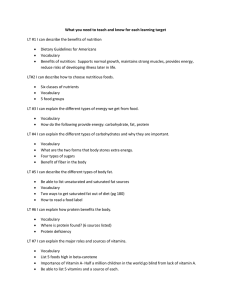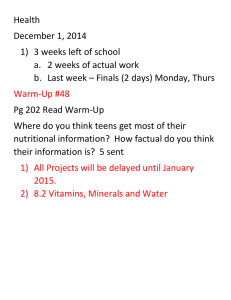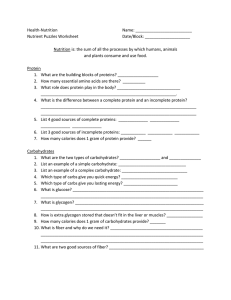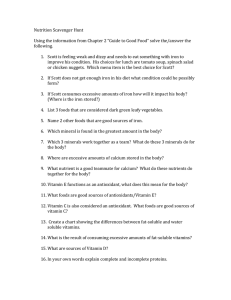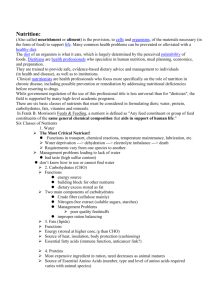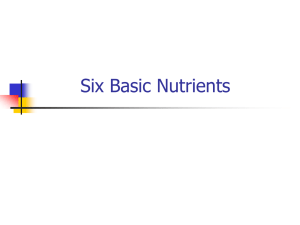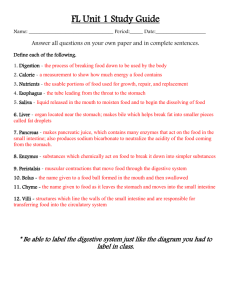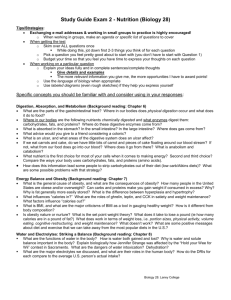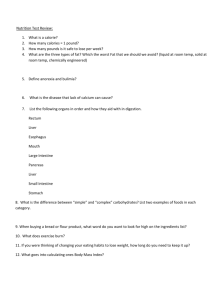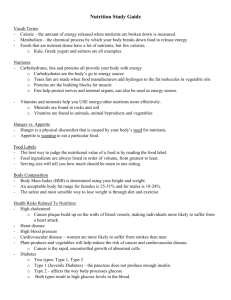Six Classes of Nutrients - UC Davis Center for Nutrition in Schools
advertisement
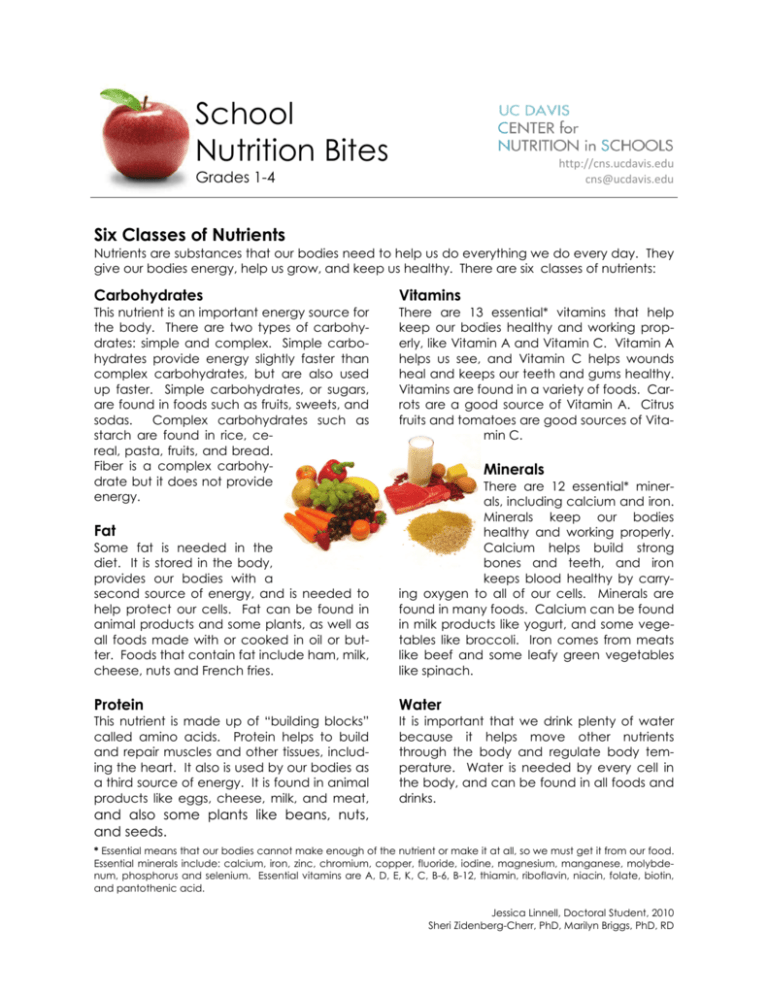
School Nutrition Bites http://cns.ucdavis.edu cns@ucdavis.edu Grades 1-4 Six Classes of Nutrients Nutrients are substances that our bodies need to help us do everything we do every day. They give our bodies energy, help us grow, and keep us healthy. There are six classes of nutrients: Carbohydrates Vitamins This nutrient is an important energy source for the body. There are two types of carbohydrates: simple and complex. Simple carbohydrates provide energy slightly faster than complex carbohydrates, but are also used up faster. Simple carbohydrates, or sugars, are found in foods such as fruits, sweets, and sodas. Complex carbohydrates such as starch are found in rice, cereal, pasta, fruits, and bread. Fiber is a complex carbohydrate but it does not provide energy. There are 13 essential* vitamins that help keep our bodies healthy and working properly, like Vitamin A and Vitamin C. Vitamin A helps us see, and Vitamin C helps wounds heal and keeps our teeth and gums healthy. Vitamins are found in a variety of foods. Carrots are a good source of Vitamin A. Citrus fruits and tomatoes are good sources of Vitamin C. Minerals Some fat is needed in the diet. It is stored in the body, provides our bodies with a second source of energy, and is needed to help protect our cells. Fat can be found in animal products and some plants, as well as all foods made with or cooked in oil or butter. Foods that contain fat include ham, milk, cheese, nuts and French fries. There are 12 essential* minerals, including calcium and iron. Minerals keep our bodies healthy and working properly. Calcium helps build strong bones and teeth, and iron keeps blood healthy by carrying oxygen to all of our cells. Minerals are found in many foods. Calcium can be found in milk products like yogurt, and some vegetables like broccoli. Iron comes from meats like beef and some leafy green vegetables like spinach. Protein Water Fat This nutrient is made up of “building blocks” called amino acids. Protein helps to build and repair muscles and other tissues, including the heart. It also is used by our bodies as a third source of energy. It is found in animal products like eggs, cheese, milk, and meat, It is important that we drink plenty of water because it helps move other nutrients through the body and regulate body temperature. Water is needed by every cell in the body, and can be found in all foods and drinks. and also some plants like beans, nuts, and seeds. * Essential means that our bodies cannot make enough of the nutrient or make it at all, so we must get it from our food. Essential minerals include: calcium, iron, zinc, chromium, copper, fluoride, iodine, magnesium, manganese, molybdenum, phosphorus and selenium. Essential vitamins are A, D, E, K, C, B-6, B-12, thiamin, riboflavin, niacin, folate, biotin, and pantothenic acid. Jessica Linnell, Doctoral Student, 2010 Sheri Zidenberg-Cherr, PhD, Marilyn Briggs, PhD, RD

